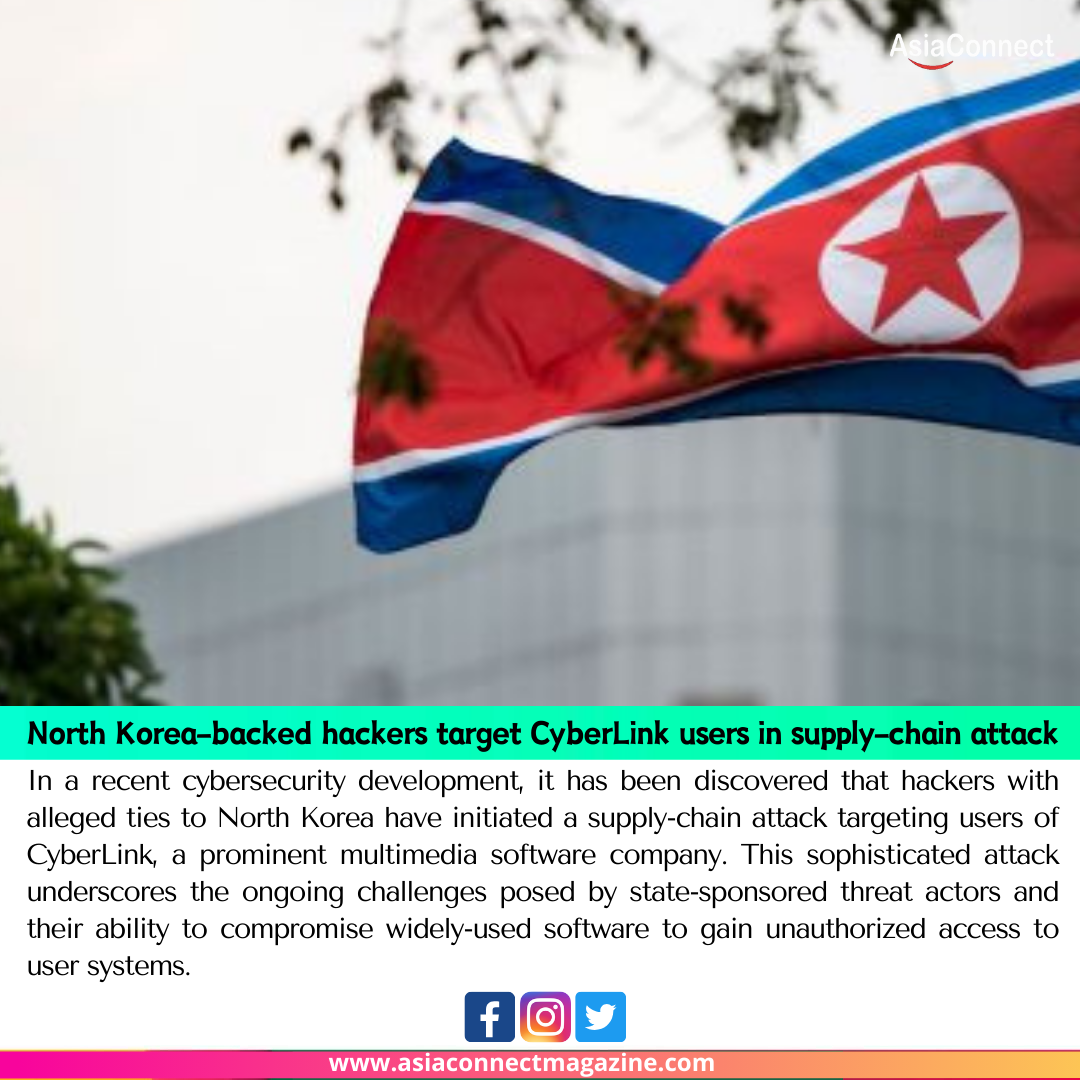In a recent cybersecurity development, it has been discovered that hackers with alleged ties to North Korea have initiated a supply-chain attack targeting users of CyberLink, a prominent multimedia software company. This sophisticated attack underscores the ongoing challenges posed by state-sponsored threat actors and their ability to compromise widely-used software to gain unauthorized access to user systems.
The supply-chain attack on CyberLink appears to be a calculated move by the North Korean hacking group to infiltrate the systems of the software company’s users, potentially aiming to gather sensitive information or deploy malicious activities on compromised devices. CyberLink, known for its multimedia and creative software solutions, unwittingly became a vector for the attack, highlighting the vulnerabilities that can exist in the supply chains of even reputable software providers.
The modus operandi of this attack involves infiltrating the software development process to insert malicious code into legitimate software updates. Users who download and install these compromised updates unknowingly introduce malware into their systems. Once infected, the hackers gain unauthorized access to sensitive information, potentially compromising user privacy, financial data, or facilitating further cyberespionage activities.
Attributing cyberattacks to specific entities or nation-states is a complex process, often requiring thorough investigation and analysis by cybersecurity experts. However, the association of this attack with North Korean hackers is based on patterns, techniques, and procedures observed in previous cyber campaigns linked to the country.
Supply-chain attacks are particularly concerning as they exploit the trust users place in software providers and their updates. Users are generally encouraged to keep their software up to date to benefit from the latest features, improvements, and security patches. However, when attackers compromise the very source of these updates, it creates a challenging scenario for users and cybersecurity experts alike.
In response to this threat, CyberLink has taken immediate action to address the security breach. The company is working on identifying and removing the malicious elements from its software, as well as enhancing its cybersecurity measures to prevent similar incidents in the future. Users are advised to update their CyberLink software with the latest patches provided by the company to mitigate the risks associated with the supply-chain attack.
This incident highlights the importance of vigilance and proactive cybersecurity measures for both software developers and end-users. Software providers must implement robust security protocols throughout their development and distribution processes to minimize the risk of compromise. Similarly, users are encouraged to verify the authenticity of software updates, especially when dealing with critical applications, and to rely on official sources for downloads.
As the cybersecurity landscape continues to evolve, threat actors are becoming increasingly sophisticated in their tactics. The CyberLink supply-chain attack serves as a stark reminder that cybersecurity is a shared responsibility, requiring collaboration between software developers, cybersecurity experts, and end-users to effectively mitigate and respond to emerging threats.





